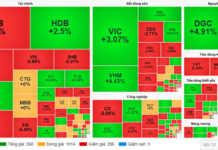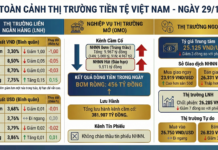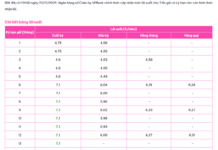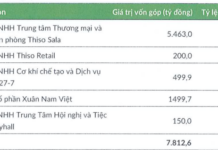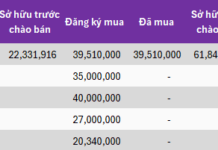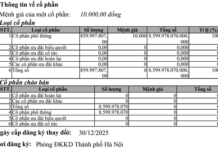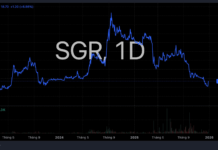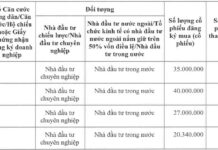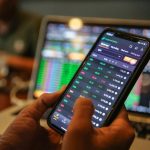The stock market has been on a four-week losing streak, falling below the 1,300-point mark. On the first trading day of the week, August 5, the VN-Index lost nearly 50 points, plunging to 1,188 points. In its 24 years of operation, the stock market has touched the 1,200-point mark numerous times but has been unable to advance further. This milestone continues to haunt investors today.
HAUNTED BY THE 1,200-POINT MARK
Commenting on this breach of the 1,200-point level, Mr. Dinh Minh Tri, Head of Analysis Department for Individual Customers at Mirae Asset, at a recent talk show on securities organized by NLD, said that the market is being influenced by many global macroeconomic factors.
We are living in an age of uncertainty, and it is challenging to predict what might happen in the future. Geopolitical tensions, particularly in the Middle East, raise concerns about regional wars and their potential to spread, affecting the global economic recovery. Additionally, changes in monetary policies, such as those in Japan, impact the psychology of people worldwide. These factors influence global financial markets, leading to a sell-off across global stock markets.
However, the decline in the market is mainly due to sentiment. Today, global stock market indices rebounded strongly, and the VN-Index followed suit.

According to Mr. Tri, statistics from 2018 to the present show that there are usually 2-3 corrective waves per year. Except for 2019, which had two minor dips, all other years had corrective waves of over 100 points, sometimes even reaching 300 points. There could be many influencing factors from a statistical standpoint.
“In 2024, the VN-Index has already dropped 129 points in the first wave. Currently, we are in the second corrective wave, and the market may correct by more than 150 points, but this is also normal. The expectation of an upgrade is the boost needed to break through,” said Mr. Tri.
Mr. Phan Nguyen Huu Phuong, Director of the Ho Chi Minh City Branch and Director of the DNSE High-end Customer Group, analyzed that this correction mainly focused on the Midcap group, which had seen significant gains since the beginning of the year, while the VN30 did not correct much.
The Midcap group’s correction was inevitable. The Midcap group’s decline is due to the poor six-month business results of some sectors, including real estate, securities, and steel. “The stock market is very smart. While the good business results belong to the banking group or ‘beauty queens’ like VNM, SAB… in the VN30 group. This leads to the common situation of ‘green shell, red heart,’ but it accurately reflects the business results of this group,” said Mr. Phuong.

Mr. Phuong observed that the market is haunted by the 1,200-point mark. Looking at the market’s previous corrections, the bottom was 235 points in 2009, around 500 points in 2018, 660 points during the Covid-19 crisis, and 900 points during the 2022 crisis.
“The market is forming higher lows, and the subsequent lows are higher than the previous ones, and it is not in a downtrend. Even if this correction drops to 1,100 points, it is still higher than the 2022 low of 900 points. This means that investing in the VN-Index for the long term is still profitable and not a loss. Investing based on the psychology of quick gains is risky,” said Mr. Phuong.
NO WORRIES ABOUT DECLINING LIQUIDITY
Regarding the decline in liquidity in the second quarter, Associate Professor Dr. Nguyen Huu Huan, a senior lecturer at the University of Economics Ho Chi Minh City, explained that recently, savings interest rates have been on the rise, and real estate is quietly attracting capital. The real estate market is rebounding, especially in the housing and apartment segments. According to the principle of communicating vessels, when the stock market is less “hot,” investors shift to other channels such as gold, real estate, savings…
Economist Dinh The Hien believes that, overall, the liquidity of over 20,000 billion VND per session in the first six months was not low. In the previous period, market liquidity reached 40,000-50,000 billion VND per session, of which 50% was artificial due to large groups creating waves by buying and selling back and forth, and this phenomenon has decreased, so liquidity has decreased compared to previous years. This is reasonable, so there is no need to worry about liquidity.
According to the economic expert, the low liquidity is due to the absence of bottom-fishing when the market falls. Experienced investors are still waiting. New investors who entered at the beginning of the year are still afraid and have not participated, only observing from the outside. “Many professional securities groups I know are holding cash and waiting for the market to fall to 1,200 points to buy. If the market can hold at 1,200 points for 1-2 weeks and the unstable news abroad subsides, money will flow into securities,” said Mr. Hien.
Regarding margin trading, Mr. Tri said that in the past, when it came to margin, the market often paid attention to small individual investors. However, there has been a change recently. According to surveys, although the value of margin loans has increased compared to the previous year, a breakdown shows that the main part of the borrowing is by large shareholders, “big boys,” in the market who buy and hold.


